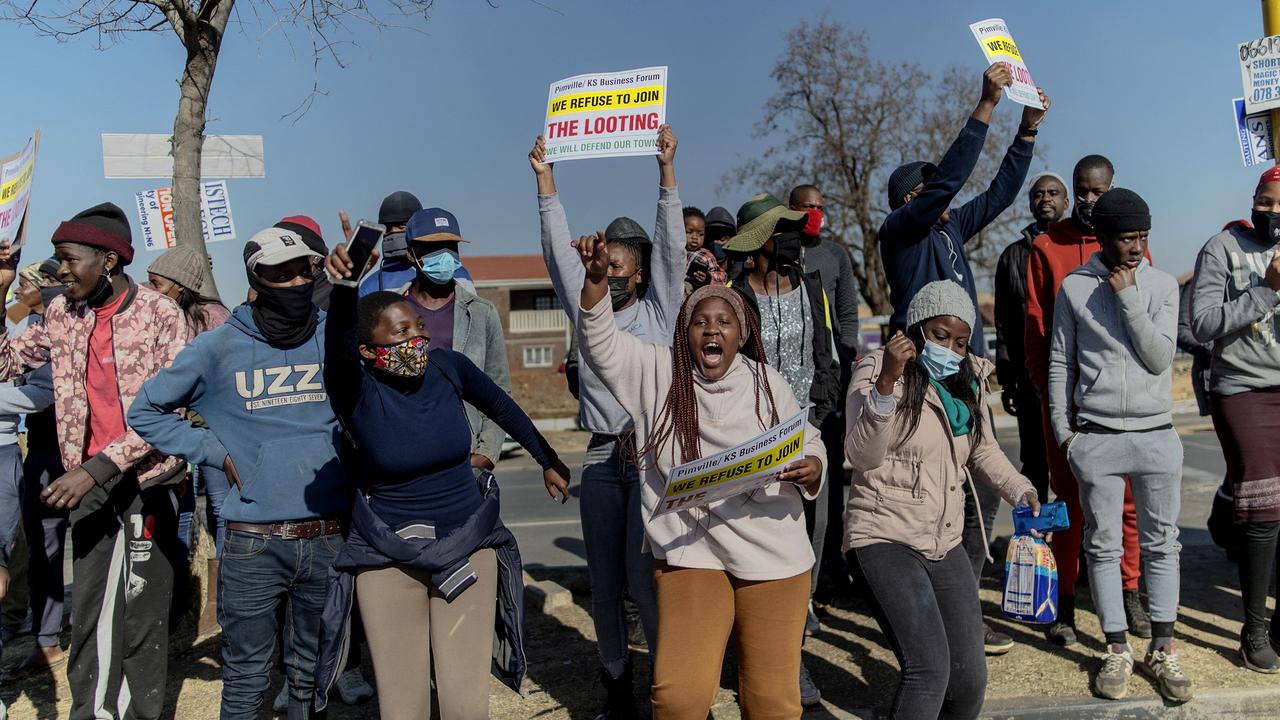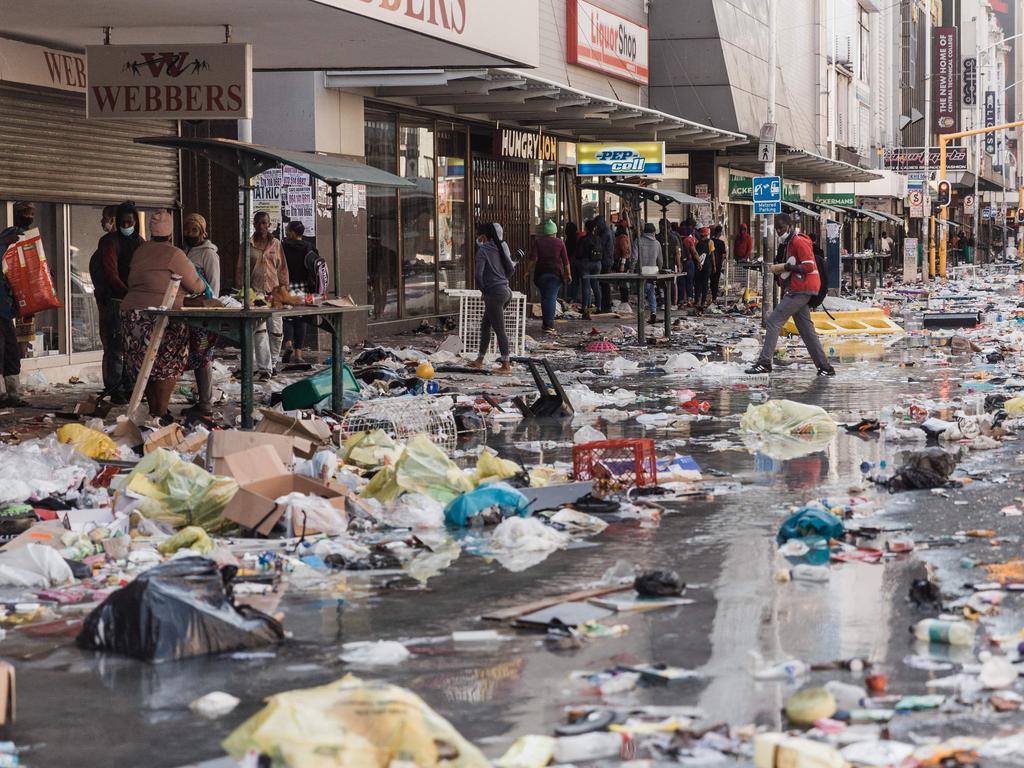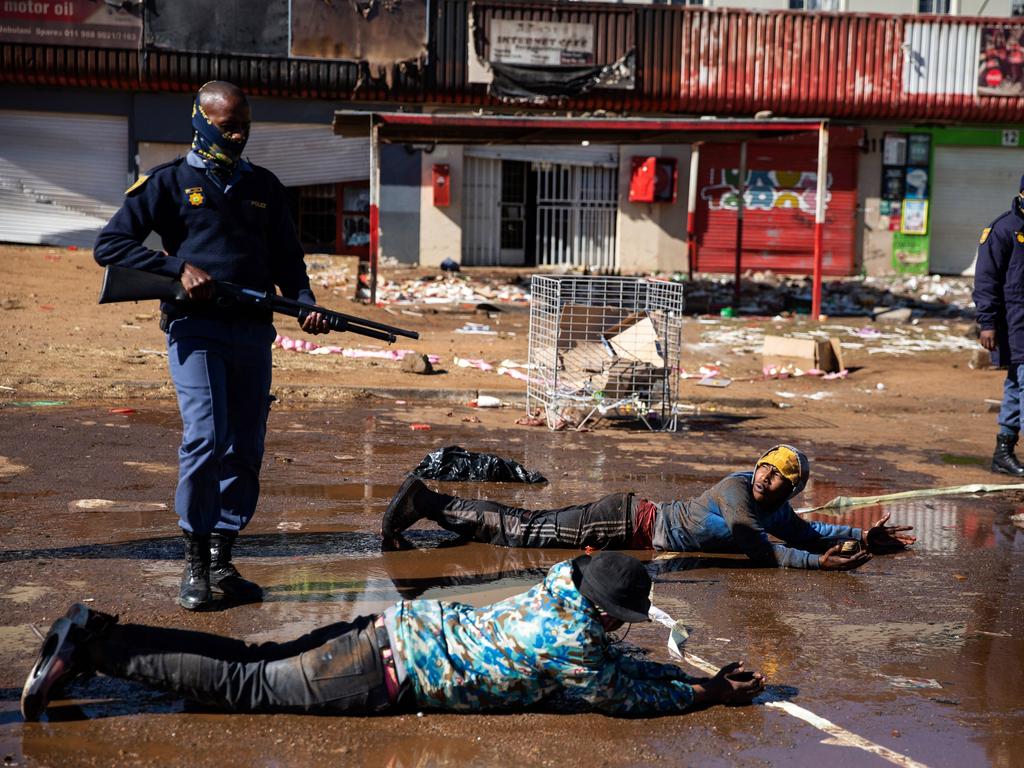Three lessons from the South African anarchy


South Africa has what the World Bank deems the highest levels of social inequality in the world and enormous unemployment levels. The black elites have looted the country to the tune of tens of billions of dollars while living high on the hog and staffing their government with ill-educated and opportunistic cronies. This is a shocking indictment of the post-apartheid regime and an utter betrayal of the hopes of Nelson Mandela.

Let me encapsulate the shocking state of affairs by simply reproducing an email yesterday from an elderly woman caught in the midst of it all: “Hi my dear friend. We’re in a war zone here. Hope our retirement centre is unharmed. Stuff going on all around us. Our super shopping mall totally looted and demolished, perhaps torched, as fire engines were screaming in that direction. Police non-existent and we are still waiting for the army. Widespread violence and looting. Was supposed to have my second jab today but venue destroyed and everything closed. Food unavailable too. Hope you are all good … Stay well and much love.”
The first lesson is one of political philosophy. The collapse of governability in South Africa demonstrates that the principles of sound governance are colour blind. Certain basic principles of accountability must be required of any regime if justice, order and progress are to be served. There is such a thing as social and economic progress. We all hoped to see it in South Africa from 1994. It has been derailed by the shocking dereliction of duty by the post-apartheid regime.

Whatever the historic injustices of apartheid, the black majority regime that replaced it peacefully 27 years ago has been an abysmal failure. The same was true in Zimbabwe after Robert Mugabe took over from Ian Smith in 1981. In both cases, flourishing economies were destroyed and kleptocratic misgovernment imposed.
It cannot be plausibly argued that what has happened in either of these “liberated” countries has been due to any colonial or neo-colonial regime. In South Africa, it has been due, four-square, to the corruption and incompetence of the political movement that fought apartheid, replaced white rule and has misgoverned South Africa since 1994.
That movement must now give way to a civil and political movement focused on the common good of South Africans and on transparent principles of accountable governance. The one redeeming feature of the anarchy in South Africa in the past few days has been the rise of civil and civilised militias to stand up to anarchy amid the failures of the established forces of order.

The second lesson is financial. The colossal theft of national treasure by grossly corrupt elites, not only in South Africa but around the world, has to be stopped. International banking must be cleaned up. The Panama Papers five years ago threw a good deal of light on the staggering scale of illicit finance globally. We now need the Pretoria Papers to expose in detail what Jacob Zuma and his cronies have been doing in South Africa for years.
But, more fundamentally, we need a redoubled global campaign to curtail the possibility of such theft by denying it havens and legal protection.
The third lesson is ideological. There has to be an end to the ideological cant that spares non-white or non-Western regimes from criticism on the grounds that such criticism is racist or hypocritical.
Certainly, political elites in the West have been more or less both of those things at times. But the cant in recent decades has come increasingly from the regressive left, with its defence of a wide range of illiberal and corrupt regimes in the name of some supposed progressive commitment.

Social and economic progress are possible and wide parts of the world have achieved both in the decades since World War II. Anti-colonialism was a big part of the progressive push from the beginning of that era, along with broadly defined commitments to human rights, including women’s emancipation, poverty alleviation, education, infrastructure development, open markets and disease control.
But the voices that denounced colonialism a lifetime ago and championed Frantz Fanon’s call for “the wretched of the earth” to rise up against their oppressors have all too commonly, since the end of colonial rule, made excuses for the violence, tyranny and corruption of postcolonial regimes. Enough now. No further alibis for thugs or kleptocrats, regardless of colour or creed.
The UN was founded to champion universal human rights and to foster economic and social development. The principles are largely sound. The practice has left a great deal to be desired. But if we can collectively take to heart the three lessons being thrust in our faces this week in South Africa, we might yet find the will and the means to set things on a sounder track.
For South Africa, that necessarily means cleaning house on first principles. The rest of us need to draw breath and take heed.
Paul Monk is the author of The West in a Nutshell: Foundations, Fragilities, Futures (2009) and Dictators and Dangerous Ideas (2018), among other books.







The outbreak of anarchy in South Africa in the past week has social and political causes of long standing, but it has thrown into high relief three crucial lessons we all need to learn. These lessons are being spelled out before our eyes in South Africa, but they are of universal relevance and we will all benefit if they are taken to heart.